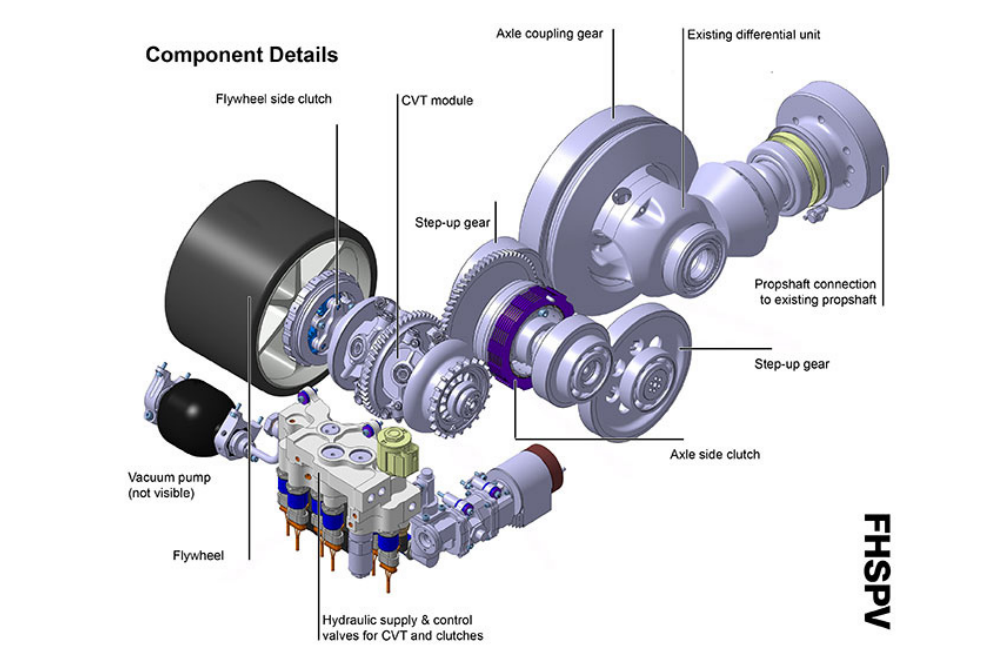Regenerative braking as a way to recover lost energy in hybrid vehicles
DOI:
https://doi.org/10.5604/01.3001.0014.1786Keywords:
braking system, regenerative braking, hybrid vehiclesAbstract
Very rapid development of the automotive industry forces designers to implement new solutions. One of them is the construction of braking systems, which can enable the recovery of part of the energy lost during the braking process in hybrid vehicles. The article presents the basic types of hybrid drives currently used in motor vehicles. The principle of operation of the mechanical and electrical energy recovery system had been discussed, and the vehicles in which such solutions had been applied were indicated.
Downloads
References
https://pl.wikipedia.org/wiki/Hamowanie_rekuperacyjne (accessed 30.03.2020) Google Scholar
https://www.delphiautoparts.com/pol/pl/article/hamowanie-rekuperacyjne-bez-tajemnic (accessed 30.03.2020) Google Scholar
https://slideplayer.pl/slide/837448/ (accessed 31.03.2020) Google Scholar
https://www.wired.com/2010/10/f lywheel-hybrid-system-for-premium-vehicles/ (accessed 1.04.2020) Google Scholar
Teaching materials for Magneti Marelli hybrid systems Google Scholar
https://en.wikipedia.org/wiki/Kinetic_energy_recovery_system (accessed 3.04.2020) Google Scholar
Herner A, Riehl HJ. Elektrotechnika i elektronika w pojazdach samochodowych. Warszawa: WKŁ; 2012. Google Scholar
Król E. Hamowanie odzyskowe jako efektywny sposób zwiększenia zasięgu pojazdu hybrydowego. Napędy i sterowanie. 2014;16(11):116-119. Google Scholar
http://www.v10.pl/Audi,A1,eTron,znamy,dane,techniczne,elektrycznej,wersji,51894.html (acccessed 31.03.2020) Google Scholar
Kubiesa A, Paszek J, Skoberla R. Nowoczesne systemy hamowania wysokowydajnych miejskich samochodów elektrycznych. Mechanik. 2018;91(1):56-58. doi: https://doi.org/10.17814/mechanik.2018.1.12. Google Scholar
Cikanek SR, Bailey KE. Regenerative braking system for a hybrid electric vehicle. Proceedings of the 2002 American Control Conference (IEEE Cat. No.CH37301); 2002 May 8-10; Anchorage, AK, USA: IEEE; 2002, vol.4, pp. 3129–3134. https://doi.org/10.1109/ACC.2002.1025270. Google Scholar
https://www.mazdaspeed.pl/technika/system-i-eloop/ (accessed 1.06.2020) Google Scholar
Śliwiński C. Kinetic energy recovery systems in motor vehicles. Proceedings of the Scientific Conference on Automotive Vehicles and Combustion Engines (KONMOT 2016); 2016 Sep 22-23; Krakow, Poland: IOP Conference Series: Materials Science and Engineering; 2016, vol.148(012056), pp. 1-11. doi: https://doi.org/10.1088/1757-899X/148/1/012056. Google Scholar
Dholakiya UM, Patel MS, Mohit A, Kanara V. Kinetic Energy Recovery System. International Journal of Engineering Development and Research. 2015;3(4):1029-1033. Google Scholar
https://www.wnp.pl/motoryzacja/i-eloop-patent-mazdy-na-odzyskiwanie-energii-podczas-hamowania,156610.html (accessed 31.05.2020) Google Scholar
Skarbek-Żabkin A, Szczepański T, Ślęzak M. Zwiększenie efektywności energetycznej samochodu poprzez optymalizację układu rekuperacji energii. Maszyny Elektryczne – Zeszyty Problemowe. 2017;2(114):1-8. Google Scholar
https://www.motofakty.pl/artykul/audi-a1-e-tron.html (accessed 5.06.2020). Google Scholar

Downloads
Published
How to Cite
Issue
Section
License
Copyright (c) 2020 University of Applied Sciences in Tarnow, Poland & Author

This work is licensed under a Creative Commons Attribution-NonCommercial 4.0 International License.



